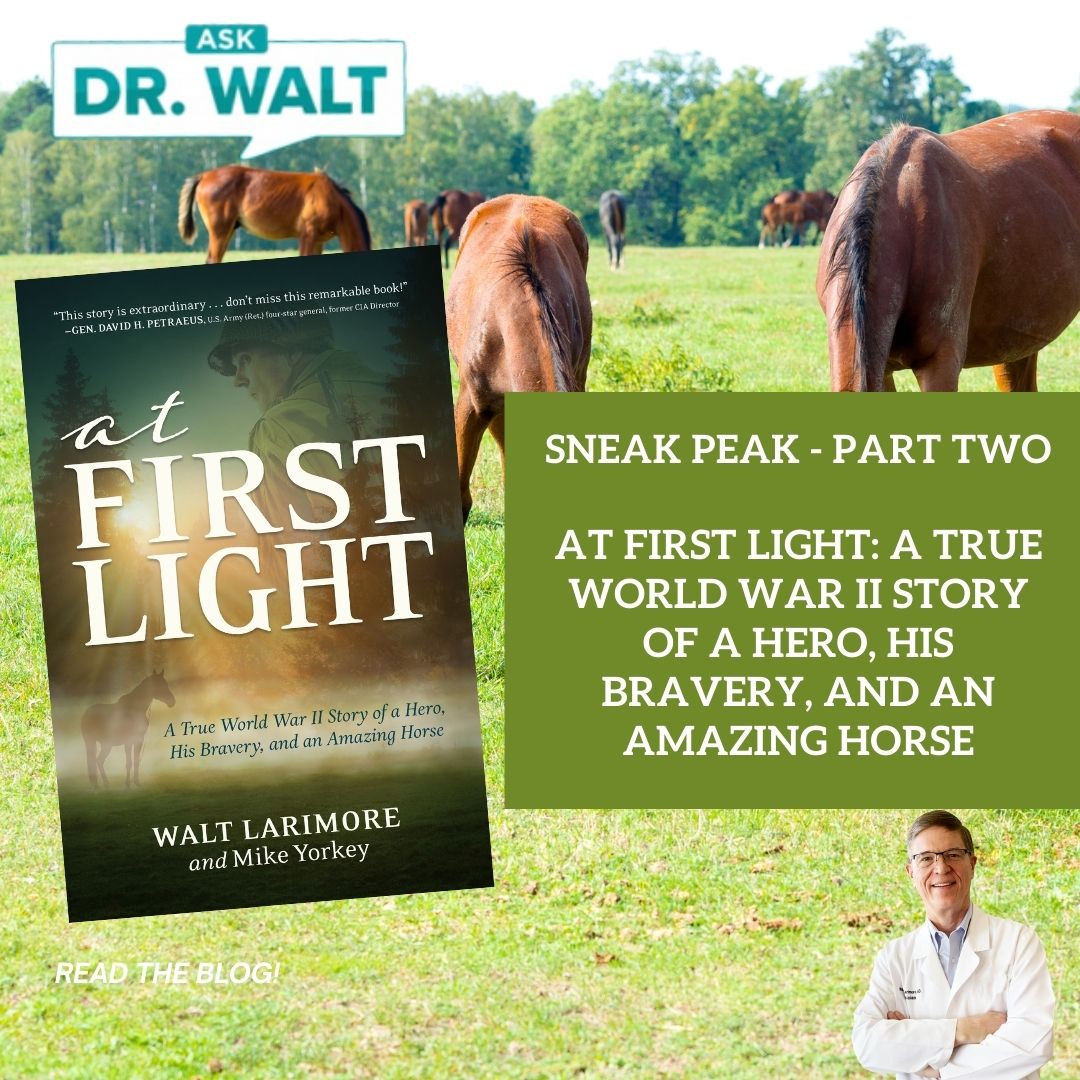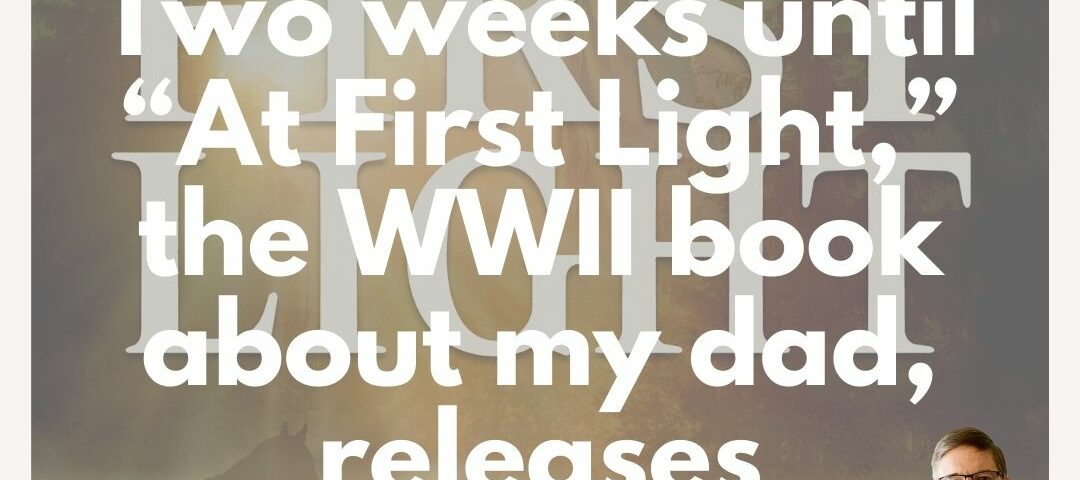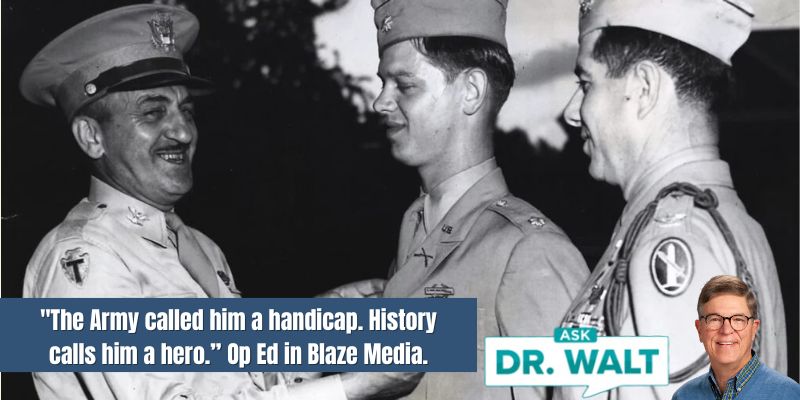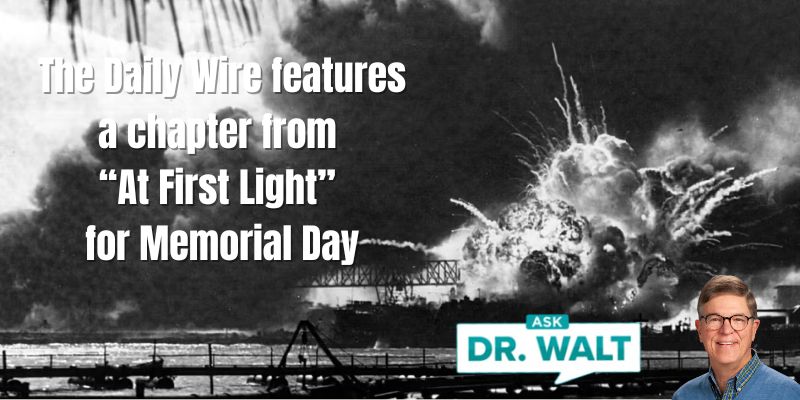BATON ROUGE, La. (WAFB) – You’re an infantryman in World War II. Your commander comes to you with a secret mission behind enemy lines. You’ll have to go alone, and if you’re caught, the United States will disavow any knowledge of you. As far as the Army is concerned, you are AWOL. If you’re killed, your family will not receive any life insurance.
It sounds like a movie plot. But it was the exact question put to Maj. Philip Larimore in April of 1945. The secret mission he accepted led to the rescue of some pretty famous names. His stranger-than-fiction military career was put together by his son, Walt, after Philip’s death in 2003.
Like most men who survived the battlefields of WWII, Philip left his war stories behind.
“We knew he had a bunch of medals in his office,” said Walt. “And he had a bunch of photographs of generals signed like, ‘To a fighting man,’ ‘To the best soldier I’ve ever fought with,’ but he never talked about it.”
It wasn’t until Philip had been married 50 years and his children had grown that he began to speak about what happened over there.
“The stories, quite frankly, are unbelievable. Stories of hopping on the back of a tank to rescue a squad. Stories of shooting snipers out of a tree at 100 yards with a .50 caliber machine gun,” added Walt.
Walt had to find out, so he dove into his father’s life.
“He was a ruffian, a hooligan, and a delinquent, so his mother and father sent him to military school,” joked Walt.
Philip graduated from Gulf Coast Military Academy and headed off to Officer Candidate School. He was commissioned a second lieutenant on his 18th birthday – the youngest commissioned officer ever in the US Army.
From there, it was off to the trenches of Anzio with the 30th Infantry Regiment, 3rd Battalion.
“He had gone there, he said, ‘to kick the heil out of Hitler.’ For liberty, and freedom, and battle, and warrior, and hero. That first night, he realized he was there for his men,” explained Walt.
It was Philip’s job to supply those men on the front lines. A conversation with a farmer he met led Philip to change the way the entire Army moved ammo for the rest of the war.
“The farmer said that these mules are smarter than a horse. They know where mines are, and they’ll avoid them. When a flare goes off, they’ll lay down and protect your men, and can carry more than any of your men,” noted Walt.
The 30th Infantry liberated Rome, Sicily, and drove the Nazis from the Vosges Mountains.
“They fought for 513 days without stop. Dad fought for 413 of those days. Psychiatrists tell us that when a frontline soldier reaches day 200, that’s when they start losing grasp of reality. These men didn’t break for hundreds of days,” said Walt.
Philip was wounded seven different times in the fighting.
“The farmer said that these mules are smarter than a horse. They know where mines are, and they’ll avoid them. When a flare goes off, they’ll lay down and protect your men, and can carry more than any of your men,” noted Walt.
The 30th Infantry liberated Rome, Sicily, and drove the Nazis from the Vosges Mountains.
“They fought for 513 days without stop. Dad fought for 413 of those days. Psychiatrists tell us that when a frontline soldier reaches day 200, that’s when they start losing grasp of reality. These men didn’t break for hundreds of days,” said Walt.
Philip was wounded seven different times in the fighting.
“They had a steeple chase course set up. So, the vet bet him he couldn’t beat him on the steeple chase course. Dad’s story was he won the steeple chase,” said Walt.
Shortly after Philip returned, Gen. George Patton authorized Operation Cowboy to rescue the last remaining Lipizzans in the world.
Philip returned to his platoon where he was shot from the back of a tank as he attempted to rescue his squad from an ambush. That final wound cost him his right leg. After rehab, the Army discharged him.
By that time, he had received every medal of valor the Army awards except the Medal of Honor.
“He never talked about those medals. He never talked about those battles and a lot of the men were like that. They fought for freedom. They fought for liberty but when they came home, they wanted to live life,” explained Walt.
That’s what Philip did until 2003. He and his wife raised four sons. He put the LSU Cartography Department on the map and gained a reputation for producing high-quality maps and graphics.
You can read all about his stranger-than-fiction service in his son Walt’s book, At First Light: A True World War II Story of a Hero, His Bravery, and an Amazing Horse.
Copyright 2022 WAFB. All rights reserved.

SNEAK PEAK – Part Two – At First Light: A True World War II Story of a Hero, His Bravery, and an Amazing Horse
April 9, 2022
Caution should be exercised when using diet apps
April 11, 2022Our family is having a great time in Baton Rouge for the premiere of my WWII book, “At First Light: A True World War II Story of a Hero, His Bravery, and an Amazing Horse. I thought you might like seeing the coverage by one of the TV stations on the book.
You Can View or PreOrder the Book Here
You can view the video story here: https://www.wafb.com/2022/04/08/wwii-heros-amazing-story-comes-light-book-written-by-son/. Here’s the transcript:
WWII hero’s amazing story comes to light in book written by son
More amazing endorsements are posted here. I hope you’ll preorder a copy for yourself and encourage any other WWII fans you know to do the same!
© Copyright WLL, INC. 2022.





